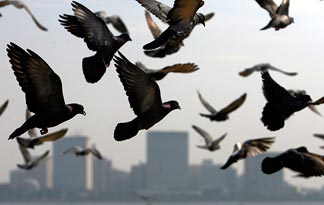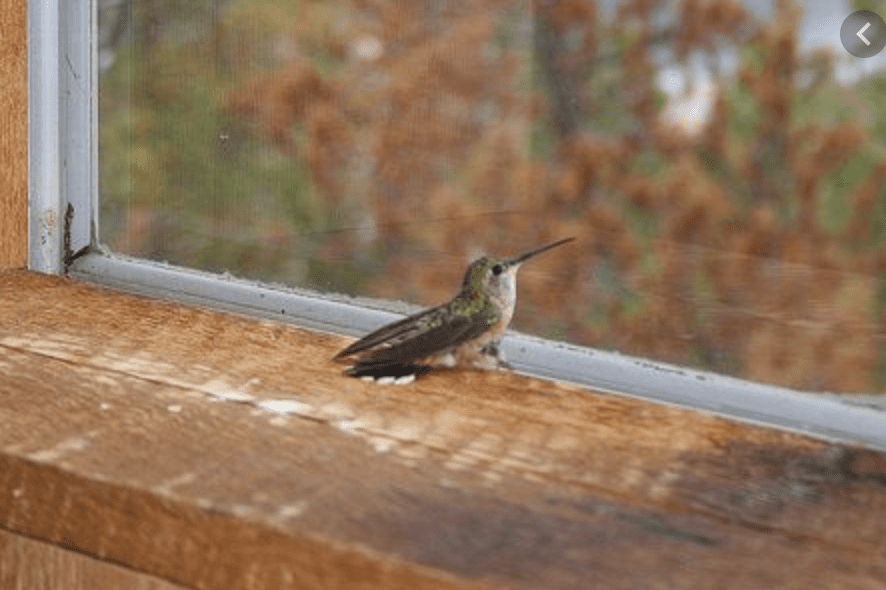
by Pigeon Patrol | Nov 23, 2020 | Bird Netting, Pigeon Control, Pigeon Droppings, Pigeon Patrol's Services, Pigeon Spikes
Outdoor spaces just aren’t the same without colorful, chirping birds that flutter and dance before our eyes. Unfortunately, birds have a troublesome habit of getting into indoor spaces that aren’t made for wild animals. The problem is especially acute during the cool season. If you’re dealing with bird problems in the home, you need to know what causes indoor bird infestations and what you can do about them.
Why Do Birds Come Inside?
Birds come inside for many different reasons. In some cases, indoor spaces mimic birds’ natural habitats or provide suitable, sheltered locations for the construction of nests or perches.
In other cases, carnivorous birds follow small animals like mice inside. With a steady supply of prey, they find it easier to remain inside than brave the uncertain outside world.
Even birds that don’t hunt indoor pests may be drawn to easily accessible food sources, including grains and seeds, inside the home.
How Do Birds Get Inside Your Home?
The chimney isn’t the only way that a bird can enter your house; exhaust vents and small holes in your roof are also prime targets. If you didn’t actually see the stray bird come out of your fireplace, check your attic to see if there are more of them living on your property. 3. Put screens on your windows and doors
Birds tend to spend more time indoors during the cool season. Some of the most common pest species inside Arizona homes include:
- House sparrows that can easily penetrate small holes and vents
- Woodpeckers that can easily break apart wooden structural elements to create nests or food sources
- Birds of prey that use sheltered areas as perches
How to Handle Birds Inside the Home Source
It can be overwhelming and even frightening to deal with birds inside the home. Fortunately, there are a number of proven strategies that can help mitigate the problem:
- Cut off carnivorous birds’ food sources by controlling indoor pests like mice and rats
- Install ventilation screens and other barriers to entry
- Patch holes and other “weak points” in your home’s siding, roof, foundation line and garage
- Put out a bird feeder to discourage food-seeking behavior inside the home
- Call a professional to handle stubborn infestations
Protect Your Home Against Birds in Vancouver B.C Call Pigeon Patrol
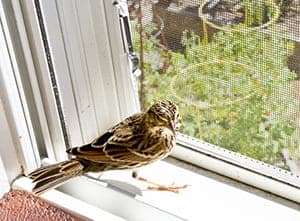
About Pigeon Patrol:
Pigeon Patrol Products & Services is the leading manufacturer and distributor of bird deterrent (control) products in Canada. Pigeon Patrol products have solved pest bird problems in industrial, commercial, and residential settings since 2000, by using safe and humane bird deterrents with only bird and animal friendly solutions. At Pigeon Patrol, we manufacture and offer a variety of bird deterrents, ranging from Ultra-flex Bird Spikes with UV protection, Bird Netting, 4-S Gel and the best Ultrasonic and audible sound devices on the market today.
Contact us at 1- 877– 4– NO-BIRD, (604) 585-9279 or visit our website at www.pigeonpatrol.ca
Pigeon / Pigeon Patrol / Pigeons Roosting / Vancouver Pigeon Patrol / Bird Control / Surrey Pigeon Control / Pest / Vancouver Pigeon Blog / Birds Inside Home
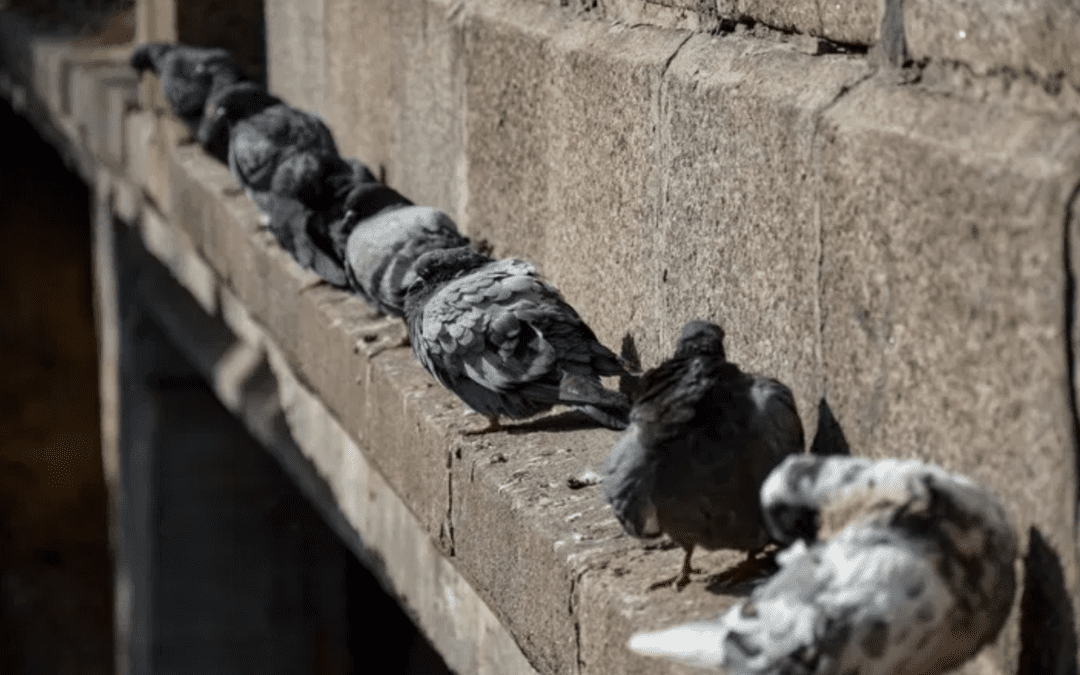
by Pigeon Patrol | Nov 23, 2020 | Bird Deterrent Products, Bird Netting, Pigeon Control, Pigeon Droppings, Pigeon Patrol's Services, Pigeon Spikes
Do you have pigeons roosting at your property? Not sure if they cause any harm or if you should get rid of them? Keep on reading to find out what pigeons may do to your property!
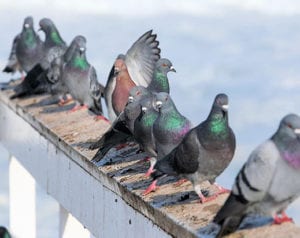
Pigeons may seem harmless, but these pest birds cause millions of dollars in damage every year to buildings, ventilation systems, machinery, statues, roofs, and much more. Bird droppings and nesting materials left by pigeons pose physical problems and health hazards that can become very serious if not corrected quickly making prompt and effective professional bird control is often essential.
Pigeons Roosting
Pigeons find our window ledges, rooftops, bridges, and warehouses to be ideal substitutes for the natural ledges in cliff sides that they have always used as roosting, nesting, and sheltering sites. When flocks grow too large and become a nuisance, killing the birds is often the first plan of action.
Potential Health Hazards:
There are many health risks associated with pigeons and their droppings. The bacteria, fungi, and ectoparasites that they and their droppings harbor are numerous. The four most common ways disease is passed by bird to human are: inhalation of fecal dust, food and water contaminated with bird feces, direct contact with feces, and parasitic transfer.
Pigeon droppings can expose humans to many diseases, including salmonella, Newcastle disease, candidiasis, encephalitis, orthosis, and toxoplasmosis. In addition, they can also carry cryptococcosis, and coccidiodomycosis, which cause meningitis. The droppings may also harbor growth of fungus, which causes histoplasmosis. Fleas, lice, mites, and other pests often live on these birds, hitching a ride to where ever they want to jump off. Pigeons may also attract other pests, such as rats, which feed on dead pigeons and food that well-intentioned bird lovers may scatter for them.
In addition to disease, bird droppings are known for triggering 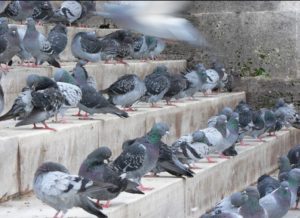 people to slip and fall, which makes it especially important to rid the birds from highly trafficked areas. Source
people to slip and fall, which makes it especially important to rid the birds from highly trafficked areas. Source
Damage Caused by Pigeons:
These are messy birds, leaving droppings everywhere they go, particularly near their roost sites. Pigeon droppings are not just gross, they are also full of uric acid which makes them extremely corrosive. The droppings are the direct cause of millions of dollars in damage to buildings and other structures. Particularly vulnerable are painted surfaces, awnings, signs, and other similar surfaces. A tragic example of the corrosiveness of pigeon droppings is the Minnesota bridge accident in 2007, which was found to be the direct result of bird droppings eating away at the metal bridge supports until they weakened.
In addition to the damage cause by their acidic droppings, pigeon nests can also cause damage. Pest birds will often build nests in gutters or on roof corners blocking essential drainage systems. Every year several warehouses experience roof damage, and even collapse, when drainage systems have been blocked and standing water rises just six inches. Bird nests can also block ventilation systems, which not only prevents exhaust of potentially harmful gases, but also has the potential to spread diseases. Fire is also a potential hazard. Nesting materials are usually flammable, consisting of twigs, straw, grasses and dried droppings. When pest birds build their nests inside electric signs or other machinery there is a great risk of fire.
Pigeons are creatures of habit and highly social. Once they have found a cozy spot the will return again and again, bringing along more of their pigeon pals. Prolific breeders, pigeons can hatch several broods a year, sometimes even laying a new clutch before the previous have even hatched. Often our buildings and structures have architectural features such as drain spouts and eaves that make perfect nesting spots for these birds. Pigeons are comfortable around humans and they’re hard to scare away or deter. Once a flock of stubborn unwanted pigeons have set up shop in/on your building, it can be stubbornly resistant to removal, often requiring the services of a pest control or animal control professional. As is true of many pests that invade our homes and businesses, the first step to controlling feral pigeons is to remove their food source.
Tips to deter pigeons:
- Don’t feed the pigeons.
- Screen drains and gutters to make your property less attractive to pigeons.
- Encourage children to pick up spilled food – and teach them NOT to feed pigeons
- Keep areas around trash bins and outdoor dining areas clean
- Eliminate water sources such as bird baths, over-watered lawns, or kiddy pools.
If you need help to prevent or eliminate pesky problem pigeons, please contact us!
Hope you learned more about why you should take action when pigeons are roosting on your property
About Pigeon Patrol:
Pigeon Patrol Products & Services is the leading manufacturer and distributor of bird deterrent (control) products in Canada. Pigeon Patrol products have solved pest bird problems in industrial, commercial, and residential settings since 2000, by using safe and humane bird deterrents with only bird and animal friendly solutions. At Pigeon Patrol, we manufacture and offer a variety of bird deterrents, ranging from Ultra-flex Bird Spikes with UV protection, Bird Netting, 4-S Gel and the best Ultrasonic and audible sound devices on the market today.
Contact us at 1- 877– 4– NO-BIRD, (604) 585-9279 or visit our website at www.pigeonpatrol.ca
Pigeon / Pigeon Patrol / Pigeons Roosting / Vancouver Pigeon Patrol / Bird Control / Surrey Pigeon Control / Pest / Vancouver Pigeon Blog /
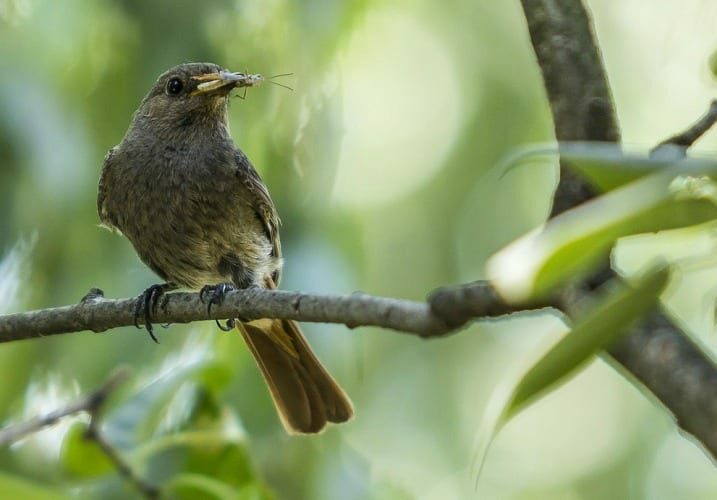
by Pigeon Patrol | Nov 15, 2020 | Bird Deterrent Products, Bird Netting, Bird Spikes
Wanna know how to keep pest birds away from your garden? Well you’ve come to the right place!
It takes work to till, plant and weed a garden. But the results are worth it—flowers, fruits and vegetables you can proudly share with family and friends. The problem is birds. They like your garden too.
Pest Birds Can Destroy Gardens
Without effective bird controls, pest birds like sparrows, swallows, pigeons and crows can wreak havoc on your garden. Songbirds will show no mercy to your broccoli, corn, green peas, snap peas, apples, apricots, blackberries, blueberries, cherries, currants, grapes, peaches, pears, plums, raspberries and strawberries. You’ll know you have a problem if patches of young seedlings completely disappear, or the tops of your young plants are chewed off, or if you notice bites taken out of the berries as they ripen.
Mocking birds, orioles and thrashers, for example, will eat your oranges. Bluebirds, finches, robins and waxwings love to feast on grapes. Starlings will go after your cherries. Regardless of the fruit you’re growing, there’s a bird that will “beat you to the picking.” Birds also won’t hesitate to crater your lawn while they dig for bugs. In times of drought, birds will eat many different fruits and vegetables, including tomatoes and melons.
Lethal Means of Bird Control Are Often Illegal
Some homeowners are tempted to resort to lethal bird control measures. Poisons (avicides) should not be used, since they can be ingested by pets and pose additional hazards to adults and children. These lethal substances are also tightly controlled by the government, and many species of birds are protected, so their use is highly restricted. The use of firearms, even pellet guns, should also be avoided, since they pose harm and possible injury to neighbours, pets and property. Trapping birds is one option, but this method won’t stop other birds from invading your garden. If your garden is attractive for roosting and nesting, they’ll just keep coming.
The hard truth is that unless you implement some effective bird control measures, you’re just growing fruits and vegetables for the birds. To save your garden, here are some inexpensive and humane strategies the bird control experts at Absolute Bird Control recommend:
Make Your Garden Less Attractive to Pest Birds
To deter pest birds from your garden, start by removing their easy access to food and water—including pools of standing water after rains or sprinkler use. Convince your family (especially kids and grandma/grandpa) to stop feeding any birds. These early “scouts” will bring flocks to your garden. So make sure trash containers are tightly closed, and clean any food scraps around tables, benches and chairs. Finally, deny birds access to nesting and roosting sites around your property by sealing all openings to eaves, lofts, steeples and vents.
Another Way To Keep Pest Birds Away: Create a Visual Distraction Zone for Pest Birds
To keep pest birds from your garden, create a visual distraction zone around it. Absolute Bird Control offers a number of economical products that will harmlessly alarm or distract pest birds. Here are five you should consider:
- Flash Tape. This tape comes in 100-ft rolls and is made of iridescent foil that’s easily cut into short strips. Affixed to high visibility areas of your garden, the strips snap in the wind and reflect sunlight to make birds too nervous to stay.
- Bird Scare Diverters. These teardrop-shaped deterrents intimidate pest birds with a predator eye on a reflective surface. A swivel attachment allows the diverter to rotate 360° for added effectiveness. Attach to fences, trees and patio covers.
- Bird Scare Balloons. Covered with lifelike reflective predator eyes and markings, these balloons are 16-inches in diameter (about he size of a standard beach ball). Pest birds take one look at those big bright eyes and think they’re about to be attacked by a giant predator. Made of UV-resistant and weather-resistant vinyl. Attach to fences, trees and patio covers.
- Hawk Decoys. These realistic-looking decoys stand about 17 inches tall to convince pest birds that a real hawk is standing by ready to strike. Made of heavy duty plastic to ensure its “live” appearance, the decoys can be placed in any high visibility area of your garden. Simply move the decoy from time to time to keep pest birds “on their toes.” Source
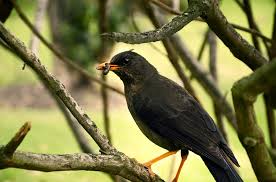
About Pigeon Patrol:
Pigeon Patrol Products & Services is the leading manufacturer and distributor of bird deterrent (control) products in Canada. Pigeon Patrol products have solved pest bird problems in industrial, commercial, and residential settings since 2000, by using safe and humane bird deterrents with only bird and animal friendly solutions. At Pigeon Patrol, we manufacture and offer a variety of bird deterrents, ranging from Ultra-flex Bird Spikes with UV protection, Bird Netting, 4-S Gel and the best Ultrasonic and audible sound devices on the market today.
Contact us at 1- 877– 4– NO-BIRD, (604) 585-9279 or visit our website at www.pigeonpatrol.ca
Bird Gone, Pigeon Gone, Seagull Gone, Pigeon problems, 1-877-4NO-BIRD, 4-S Gel, Bird Control, Pigeon Control, bird repellent,, sonic bird repellent, stainless steel , bird spikes Vancouver, Ultra Sonic Bird Control, Bird Netting, stop aggressive pet birds Canada bird deterrents, Pigeon Pests, B Gone Pigeon, Pigeon Patrol, pest controller, pest control operator, pest control technician, Pigeon Control Products, humane pigeon, pigeon deterrents, pigeon traps, Pigeon repellents, stop aggressive pet birds Sound & Laser Deterrents, wildlife control, raccoon, skunk, squirrel deterrent, De-Fence Spikes, Dragons Den, Canada bird spikes, Canada pigeon, pigeon control, pigeon patrol, pigeon. destroy pigeons, crow, starling, Pigeon Habitat, Pigeon identifications, pigeon myths, stop aggressive birds, stop aggressive pet birds, problems with pest birds, Keep away pest birds
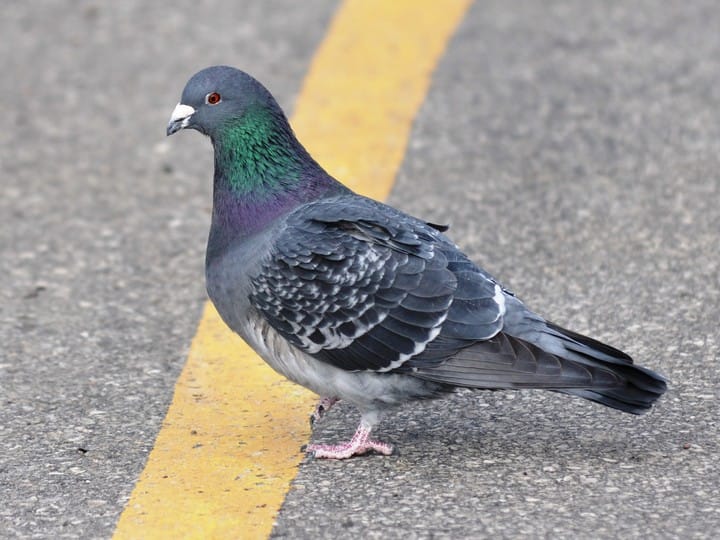
by Pigeon Patrol | Nov 15, 2020 | Animal Deterrent Products, Bird Deterrent Products, Bird Netting, Bird Spikes
Do you wanna know what the problems are with pest birds? then keep on reading!
| Pest Bird Problems – Problems Caused by Pest Birds
Birds problems can cause damage to buildings and agriculture environments. Many bird problems are due to poor planning and /or design. Nimby Bird Control Solutions has a team of experts who first study the bird problems and develop a plan of action to address the particular bird problem faced by each client.
Nimby Bird Control Solutions is committed to environmentally sound methods of bird control. This includes a number of bird control techniques including netting, spikes, electric shock and other bird deterrents. Our methods to address bird problems first begin with a thorough examination and understanding of each bird problem situation. |
|
| Types of Bird Problems
Pigeon Nesting Bird Problems
Nesting can cause fire hazards and extensive damage to roofs, eaves, structures and machinery. Nesting around building ventilation systems will cause them to clog and work inefficiently. Birds nesting can introduce bacteria and viruses into buildings. Spores, parasites, fleas and ticks can become serious health hazards in affected buildings. Nests in chimneys and vents can block exhausting of moisture and carbon monoxide. This can cause build up of mold and carbon monoxide causing health hazards.
Pigeon droppings Bird Problems
Bird Droppings are not just unsightly. They contain allergens and health hazards. They are also highly corrosive and harmful to buildings, machinery. Bird droppings can lead to clogging of the ventilation ducts and obstruction of drainage systems. Damage to equipment and machinery, buildings and roofs can be very expensive to repair. Unpleasant odors can permeate through ducts and ventilation systems. Bird droppings and feces, when inhaled, can cause an incurable disease called histoplasmosis which is characterized by constant flu-like symptoms. Source
Property damage Bird Problems
Property Damage to roofs, eaves, chimneys and machinery are among some of the issues faced by property managers. Bird droppings contain corrosive matter including uric acid. They are extremely harmful to machinery and equipment and are often the cause of expensive damage to stored items as well. Bird droppings can accumulate and block gutters and result in water damage to roofs and walls.
Appearance issues Bird Problems
Appearance issues Nests, droppings and debris cause appearance problems as well as safety and health concerns. At entrances to buildings, stores and restaurants they can be unsightly and a reason for drop in traffic and sales. Depending on their locations, bird droppings in high traffic areas can cause safety concerns. Around paths and walkways, and at entrances to stores and buildings, bird droppings and bird feces are slippery and unsafe, can spread bacteria and health risks.
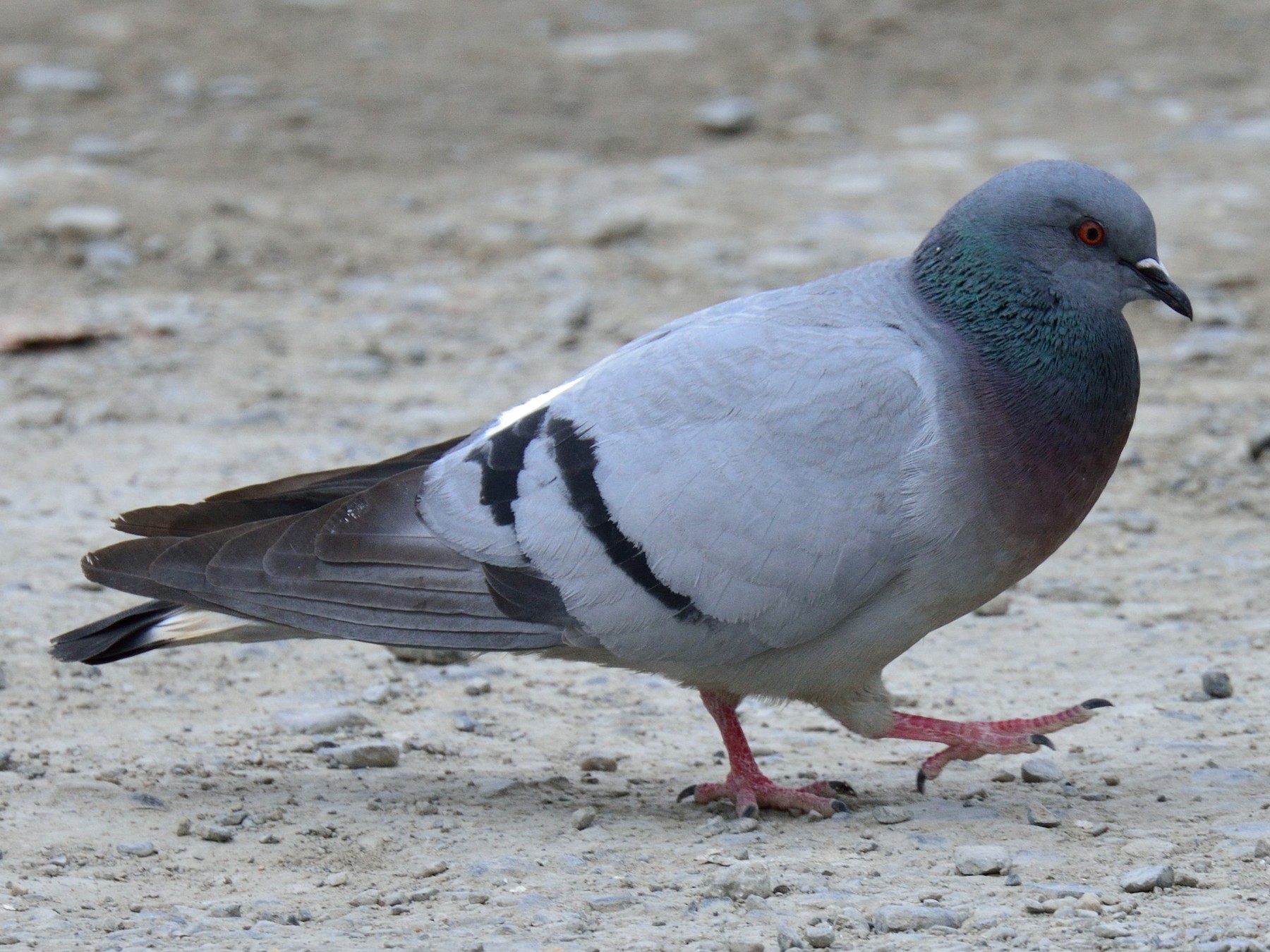
Safety hazards
Safety Hazards are frequently less understood. Birds carry allergens, parasites, bacteria and other health risks to humans. Histoplasmosis, encephalitis and other infectious diseases are spread by birds. Birds nesting around air-conditioning equipment can spread these contaminants throughout buildings and cause a phenomenon called sick building. Birds introduce parasites, fleas and ticks in the environment around their nesting areas and building ventilation system. Air circulation can quickly spread odor and contaminants throughout the building.
Food Contamination Bird Problems
In warehouses, food manufacturing plants, grain silos, storage facilities. Grocery stores with open displays, exposed food shelves and other such facilities require special attention. Birds often find ways to nest and breed around such buildings. Contaminated food, stored items may have to be destroyed and extensive expenses incurred for cleaning and sanitation.
Bird Problems in airport hangars and small twin engine planes on tarmac
Aircraft Hazards – there are a number of bird problems besides bird strikes that are faced by municipal airports. Birds find nesting areas and form colonies around aircraft hangars, maintenance buildings. They can cause slippery hangar floors due to their droppings and thus jeopardize people’s safety. Birds will also lead to unhealthy work environments, foul parts prior to installation, cause hazardous situations when birds inhabit aircraft mechanisms. Bird droppings are extremely corrosive and cause expensive damage to the paint on aircraft. Birds also nest or loaf around airport jetways and loading bridges. Nimby Bird Control Solutions has effective bird control solutions designed especially for bird problems at aircraft hangars and airports.
Birds in agricultural fields Bird Problems
Agricultural Damage Bird Problems have a direct impact on the economics of agriculture. Birds feed on seeds or seedlings, damage or destroy ripened crops or pass bacteria on the crops possibly spreading disease or harmful bacteria. The birds may also eat or defecate on stored food. In small numbers, these bird problems are manageable. Left unchecked, they can have a significant adverse impact on farming operations, fish farms, orchards and vegetable farms. In recent times cormorants have become a serious concern in the upper great lakes region. |
About Pigeon Patrol:
Pigeon Patrol Products & Services is the leading manufacturer and distributor of bird deterrent (control) products in Canada. Pigeon Patrol products have solved pest bird problems in industrial, commercial, and residential settings since 2000, by using safe and humane bird deterrents with only bird and animal friendly solutions. At Pigeon Patrol, we manufacture and offer a variety of bird deterrents, ranging from Ultra-flex Bird Spikes with UV protection, Bird Netting, 4-S Gel and the best Ultrasonic and audible sound devices on the market today.
Contact us at 1- 877– 4– NO-BIRD, (604) 585-9279 or visit our website at www.pigeonpatrol.ca
Bird Gone, Pigeon Gone, Seagull Gone, Pigeon problems, 1-877-4NO-BIRD, 4-S Gel, Bird Control, Pigeon Control, bird repellent,, sonic bird repellent, stainless steel , bird spikes Vancouver, Ultra Sonic Bird Control, Bird Netting, stop aggressive pet birds Canada bird deterrents, Pigeon Pests, B Gone Pigeon, Pigeon Patrol, pest controller, pest control operator, pest control technician, Pigeon Control Products, humane pigeon, pigeon deterrents, pigeon traps, Pigeon repellents, stop aggressive pet birds Sound & Laser Deterrents, wildlife control, raccoon, skunk, squirrel deterrent, De-Fence Spikes, Dragons Den, Canada bird spikes, Canada pigeon, pigeon control, pigeon patrol, pigeon. destroy pigeons, crow, starling, Pigeon Habitat, Pigeon identifications, pigeon myths, stop aggressive birds, stop aggressive pet birds, problems with pest birds
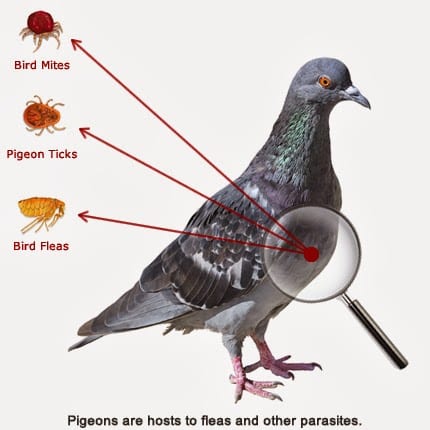
by Pigeon Patrol | Nov 5, 2020 | Animal Deterrent Products, Bird Deterrent Products, Bird Netting, Bird Spike, Bird Spikes, Columbidae, Doves, Pigeon Droppings, Pigeon Patrol's Services, Pigeon Spikes
Are There Any Myths About The Pigeon? Yes.
If you want to find out what the myths are about the pigeon, then keep on reading!
1. Pigeons All Look Pretty Much Alike
his is definitely a misconception about these ubiquitous birds. Pigeons are common in so many places around the world that they tend to blend into the scenery. But take a closer look and you’ll see a huge variety of colors and patterns among pigeons. In fact, there are dozens of distinct color variations, including red, white, blue-black and gray, according to the Cornell Laboratory of Ornithology.
Much of the variation in pigeon coloring is due to selective breeding throughout history by people who have collected pigeons for their feathers. This should come as no surprise since these animals have been cohabitating with humans for 5,000 to 10,000 years, often as pets, messengers or human sustenance.
2. Pigeons are secret spies
Despite sounding like part of a conspiracy theory, this pigeon myth is actually rooted in a measure of truth. Pigeons have been used by governments and militaries around the globe for centuries, and many pigeon activities have proved quite critical in espionage operations. For example, before the widespread use of satellite imagery, pigeons would be fitted with tiny cameras and flown over enemy territory on information-gathering exercises.
They’ve also been used extensively as messengers — the birds would carry critical notes between military installations even as late as World War II. That being said, it’s extremely unlikely that the pigeons you feed at the local park are working undercover for a foreign government.
3. Pigeons Can Fly Thousands of Miles Per Day
Based on the incredible flying abilities of pigeons, stories about their winged performance have been greatly inflated over the years. For example, pigeons have a remarkable ability to find their way home, but not from halfway around the world — as legend would have it. The truth is still impressive. Pigeons are able to navigate home across hundreds of miles using the sun, the Earth’s magnetic field and landmarks such as tall buildings.
There are also many tall tales about pigeons traveling more than a thousand miles in one day — sometimes many thousands. This is an exaggeration. The truth is that racing pigeons fly between 40 and 50 miles (64 and 80 kilometers) per hour, with the top performers covering a maximum of about 600 miles (966 kilometers) in a single day, according to the Solar Center at Stanford University. So while these stats are remarkable, pigeons are not the superheroes that many mythmakers would have you believe. Source
Pigeons can fly far, but not that far. Still, 600 miles in one day is pretty impressive.
4. Pigeons Are Warmongers
There are plenty of references to pigeons in modern society. People can be pigeon-toed or pigeon-holed, or even act as stool pigeons. If you’ve ever wondered why pigeon-themed parlance plays such a central role in human culture, look no further than your local playground or shopping center. These birds are everywhere.
Because pigeons thrive in man-made environments, they’ve become extremely common wherever there are people. In fact, pigeons are abundant in Europe, Asia and Africa, as well as throughout North America. In addition to being the subjects of legend and lore, these creatures are also the focus of a lot of misconceptions. Check out our list of the most common myths about pigeons, and perhaps you’ll learn a thing or two about our familiar feathered friends.
5. Pigeons and Doves Are Divine
Again, this myth is difficult to discuss rationally, but we felt we had to include it in the list since pigeons and doves (same family, different species) appear so often in scripture and the writings of the ancient world. Whether serving as sacrifice in Jewish tradition or as Noah’s messenger on the ark, pigeons and doves play a central role in the lore of the world’s religions.
Pigeons and doves also represent peace, purity, faith and fidelity in numerous cultures around the world. Why the birds hold such a sacred place in human societies is difficult to discern, but pigeons are no more or less likely than other animals to guide us to the hereafter. Pigeons have been associated with a variety of diseases, including histoplasmosis and cryptococcosis. Histoplasmosis is a disease caused by a fungus that grows in pigeon droppings. The fungus can also be found in bat droppings or in the soil, and is carried by the wind.
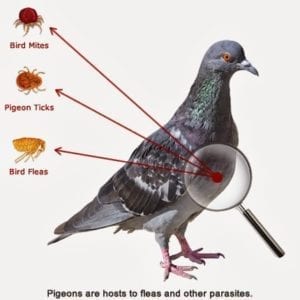
About Pigeon Patrol:
Pigeon Patrol Products & Services is the leading manufacturer and distributor of bird deterrent (control) products in Canada. Pigeon Patrol products have solved pest bird problems in industrial, commercial, and residential settings since 2000, by using safe and humane bird deterrents with only bird and animal friendly solutions. At Pigeon Patrol, we manufacture and offer a variety of bird deterrents, ranging from Ultra-flex Bird Spikes with UV protection, Bird Netting, 4-S Gel and the best Ultrasonic and audible sound devices on the market today.
Contact us at 1- 877– 4– NO-BIRD, (604) 585-9279 or visit our website at www.pigeonpatrol.ca
Bird Gone, Pigeon Gone, Seagull Gone, Pigeon problems, 1-877-4NO-BIRD, 4-S Gel, Bird Control, Pigeon Control, bird repellent,, sonic bird repellent, stainless steel , bird spikes Vancouver, Ultra Sonic Bird Control, Bird Netting, Canada bird deterrents, Pigeon Pests, B Gone Pigeon, Pigeon Patrol, pest controller, pest control operator, pest control technician, Pigeon Control Products, humane pigeon, pigeon deterrents, pigeon traps, Pigeon repellents, Sound & Laser Deterrents, wildlife control, raccoon, skunk, squirrel deterrent, De-Fence Spikes, Dragons Den, Canada bird spikes, Canada pigeon, pigeon control, pigeon patrol, pigeon. destroy pigeons, crow, starling, Pigeon Habitat, Pigeon identifications, pigeon myths
 people to slip and fall, which makes it especially important to rid the birds from highly trafficked areas. Source
people to slip and fall, which makes it especially important to rid the birds from highly trafficked areas. Source









